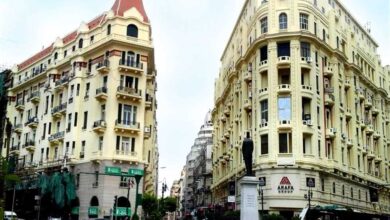Thursday’s newspapers are dominated by discussion of Muslim Brotherhood domination and the initial draft of the new constitution, which faces multiple challenges from political forces and judicial institutions.
In privately-owned Al-Shorouk newspaper, a number of constitutional experts express concern about Article 136, which allows dual nationals to run for president.
A judicial source tells Al-Shorouk that giving dual nationals the right to run for president raises many questions about whether the article was tailored toward certain potential candidates. The source adds that such a provision was not included in the Constitutional Declaration issued in 2011 by the Supreme Council of Armed Forces nor in the 1971 Constitution. The source notes that the article goes against the spirit of administrative and constitutional court rulings about “the national loyalty of those who assume leadership positions.”
Deputy head of the Supreme Constitutional Court Maher Samy says to Al-Shorouk that the current wording of the article on the SCC compromises its independence by giving the president the right to select the head of the court without consulting the court's judges.
It seems that those who were friends yesterday have become the most bitter opponents today. Salafi Nour Party leader and Constituent Assembly member Shaaban Abdel Alim tells state-run Al-Ahram daily that the constitution draft does not include articles agreed upon in subcommittee meetings. Abdel Alim says the inclusion of articles giving the president the right to appoint 25 percent of the Shura Council and the right to dissolve Parliament without a referendum was not approved by all Constituent Assembly members.
Leftist and liberal groups are planning a protest in Tahrir Square for Friday while the Freedom and Justice Party will hold internal elections on the same day to select a new chairman.
Privately-owned Al-Watan newspaper reports on a confrontation between former Manpower Minister Ahmed Hassan al-Borai, deputy chairman of the Constitution Party, and Shura Council MP Abdallah al-Sayyaf, a member of the Muslim Brotherhood, over the upcoming protest. Borai says the protest is not a response to last week’s clashes between pro- and anti-Brotherhood protesters but an expression of popular rejection of a single movement dominating the constitution-drafting process.
According to Al-Watan, Sayyaf opines that the demonstration does not have reasonable demands and is meant to settle accounts with the Brotherhood, even though the will of the people put the group in power. Sayyaf says the drafting of the constitution is going smoothly, and that commentary on the draft should take place through dialogue, not protests.
The FJP’s official paper runs a headline reading, “Boycotting” in bold letters in reference to Islamists abstaining from Friday’s protest. The paper quotes Jama’a al-Islamiya sources as describing the protest as “sedition.”
Freedom and Justice quotes a number of citizens as saying that fuel shortages and bread prices are more important than Friday protests, saying they are just a “media show” orchestrated by the participating forces.
However, the FJP mouthpiece also reports that Islamist movements are not in agreement over the draft constitution.
Jama’a al-Islamiya reportedly objects to keeping Article 2 unchanged from the 1971 Constitution, arguing that the article should be phrased more strongly to ensure the full application of Sharia. The article currently reads that the “principles of Sharia are the main source of legislation,” but the group would like the word “main” to be removed as it implies that there are other sources besides Sharia.
The FJP newspaper also allocates two pages to describing the platforms of former parliamentary speaker Saad al-Katatny and acting party head Essam al-Erian, who are competing to replace President Mohamed Morsy as the head of the party. On Friday, 1,117 FJP members will cast their votes in the election.
Katatny has said that the party would not be responsible for forming the Cabinet if it wins a majority in the next parliament, Freedom and Justice reports. His platform aims at restructuring the party’s organization and empowering women and youth members.
Erian tells the paper that the FJP has submitted 20 development projects from experts within and outside the party to the government over the last few months.
Al-Shorouk adopts an analytical perspective of the FJP internal elections, publishing the opinions of a number of experts and former Muslim Brotherhood members on each candidate’s chances, and how they may impact the party and political life in general.
According to the independent daily, Kamal al-Helbawy, former spokesperson for the Brotherhood abroad, says the results of the election will not have a significant impact on the relationship between the Freedom and Justice Party and the Muslim Brotherhood, or on relations between the FJP and other political forces.
Helbawy tells Al-Shorouk that the party’s recent performance shows that it is not willing to separate at all from the Muslim Brotherhood or include non-Islamists among its ranks.
Translated from Arabic by Mai Mohsen
Egypt’s papers:
Al-Ahram: Daily, state-run, largest distribution in Egypt
Al-Akhbar: Daily, state-run, second to Al-Ahram in institutional size
Al-Gomhurriya: Daily, state-run
Rose al-Youssef: Daily, state-run
Al-Dostour: Daily, privately owned
Al-Shorouk: Daily, privately owned
Al-Watan: Daily, privately owned
Al-Wafd: Daily, published by the liberal Wafd Party
Youm7: Daily, privately owned
Al-Tahrir: Daily, privately owned
Freedom and Justice: Daily, published by the Muslim Brotherhood's Freedom and Justice Party
Sawt al-Umma: Weekly, privately owned
Al-Arabi: Weekly, published by the Nasserist Party
Al-Nour: Official paper of the Salafi Nour Party




